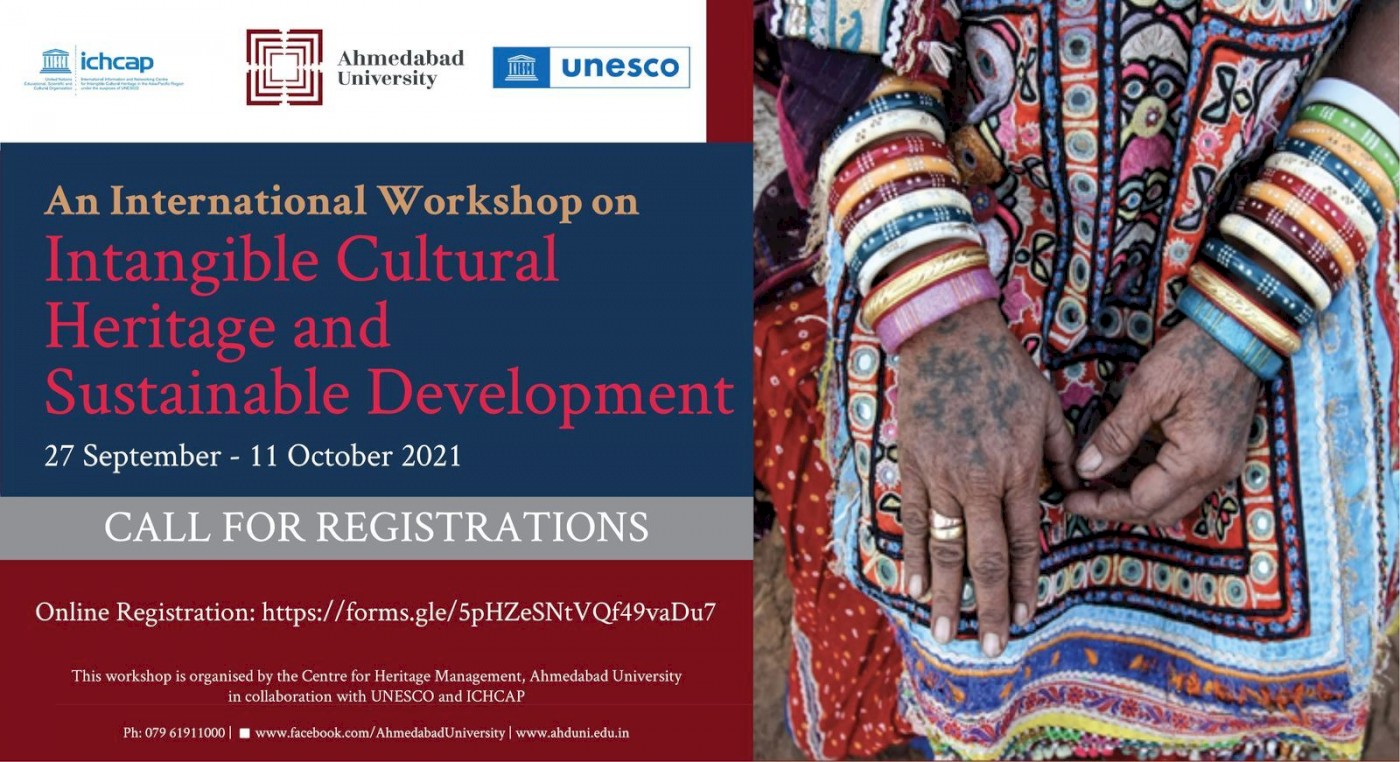An International Workshop on Intangible Cultural Heritage and Sustainable Development

UNESCO's 2003 Convention for the Safeguarding of the Intangible Cultural Heritage (ICH) is one of the key instruments in global heritage practice today. While the convention and its operational directives provide a useful framework for safeguarding ICH at the national and sub-national levels, it is imperative to contextualise the concepts and processes individually to each situation. Therefore, there is a need for emerging professionals to be aware of the convention and what it offers, as well as to explore a range of social and cultural issues associated with ICH safeguarding, including ethical principles in working with the communities. There is also a need for young professionals to situate the ICH safeguarding in a broader sustainable development context and to ensure its continuing relevance and role in achieving sustainable development goals. For these reasons, the 2003 convention has also envisioned capacity-building as a key strategy for promoting the convention and enhancing the effectiveness of ICH safeguarding worldwide. In the spirit of the convention, this workshop aimed to address the need for awareness-raising and capacity-building among young researchers and practitioners.
Organised jointly by International Information and Networking Centre for Intangible Cultural Heritage in the Asia-Pacific Region (UNESCO ICHCAP), UNESCO Bangkok and Ahmedabad University, the online workshop was an intensive, two-week course offering a combination of lectures, seminars, discussions, and exercises. As an integral part of the workshop, the participants also participated in the ICH World Forum this year which had the theme 'Intangible Cultural Heritage and Creative Industry: Rediscovery of Intangible Cultural Heritage in the Fourth Industrial Age'. As a final assignment, the participants developed a safeguarding project for an ICH element of their choice. The workshop's proceedings and the participants' projects are now available in this publication.
To read the complete report, please click here.



